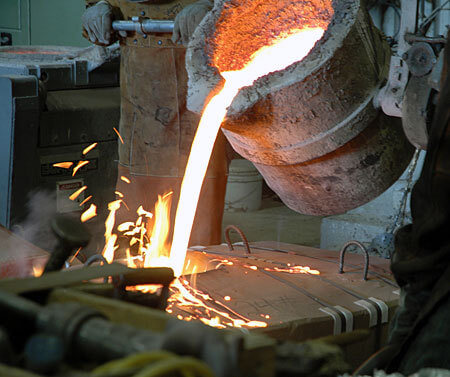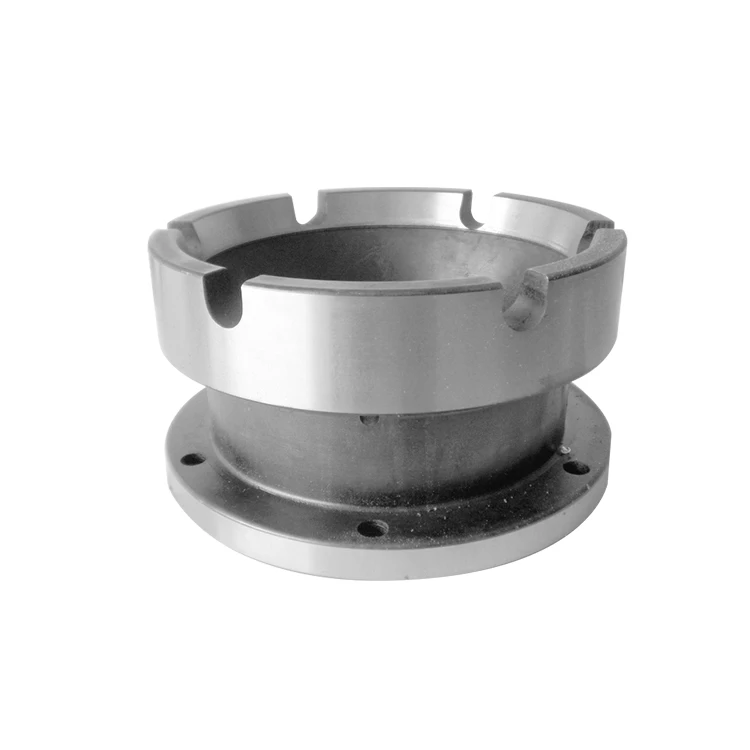How an Aluminum Foundry creates custom aluminum parts with precision
Wiki Article
A Comprehensive Overview to Selecting the Right Foundry Services for Your Job Demands
Choosing the best factory solutions is important for the success of any project. Each spreading method-- sand casting, financial investment casting, and pass away spreading-- has distinct benefits. Understanding these choices aids in making informed choices. Product option, production capacities, and quality control are essential factors to take into consideration. Additionally, evaluating costs can influence long-lasting stability. Precision aluminum casting. What variables should assist this decision-making process?Understanding the Different Kinds of Factory Services
While the world of factory services might appear facility initially glimpse, comprehending the various types can substantially streamline the manufacturing process. Foundries typically focus on casting steels, and the primary types consist of sand casting, investment casting, die spreading, and centrifugal casting.Sand casting includes producing molds from sand and is optimal for large elements or low-volume production. Investment casting, on the various other hand, supplies high precision for intricate styles, making it ideal for aerospace or clinical applications. Pass away casting, identified by compeling molten steel right into mold and mildews under high pressure, is efficient for mass production of smaller sized parts.
Centrifugal spreading utilizes rotational force to distribute molten steel, generating strong, round elements. Each solution kind has distinct benefits and is chosen based upon particular job requirements. Understanding these differences permits manufacturers to select one of the most ideal factory solution, ultimately improving effectiveness and item high quality.
Key Elements to Think About in Material Selection
Picking the appropriate material for foundry solutions is a vital step that affects the general success of a project. Key factors in material choice include mechanical homes, thermal resistance, and deterioration resistance - Aluminum Casting Company. Recognizing the intended application and its requirements is crucial; products must stand up to operational tensions while keeping honesty over timeOne more vital factor to consider is the product's compatibility with the picked manufacturing process, as some products are much better suited for particular strategies. Cost-effectiveness likewise plays a significant role, as budget plan constraints can limit choices.

Finally, schedule and preparation of products can influence project timelines, making it needed for task managers to assess these aspects completely. By meticulously reviewing these components, one can assure a much more effective and effective shop solution experience.
Assessing Manufacturing Capacities and Technologies
Just how effectively a factory can satisfy project specifications depends upon its manufacturing capacities and innovations. An extensive evaluation of these elements is vital for project success. Production capabilities incorporate the shop's capability to handle varying task complexities, dimensions, and timelines. Comprehending the foundry's tools and machinery is essential, as modern-day technologies such as computer numerical control (CNC) machining and progressed mold-making strategies can greatly boost precision and efficiency.Additionally, the shop's use of innovative materials and procedures, such as 3D printing or shed foam spreading, can offer benefits regarding layout adaptability and cost-effectiveness. It is also important to review the foundry's ability to scale production, guaranteeing that they can accommodate future rises in need without compromising high quality. By thoroughly evaluating these aspects, task managers can make educated decisions about which factory is finest suited to fulfill their details production requirements and technological assumptions.
Significance of Quality Control in Metal Casting
Quality guarantee stands as a vital pillar in the steel casting sector, making sure that every component satisfies rigorous specs and requirements. This procedure involves methodical monitoring and assessment of each phase of production, from initial design to final examination. Applying rigorous high quality assurance methods enhances the integrity and efficiency of cast components, reducing the likelihood of flaws that can compromise structural honesty.Moreover, effective quality assurance fosters trust between foundries and customers, as adherence to high criteria represents dedication to excellence. It likewise lessens pricey rework and delays, simplifying manufacturing procedures. By determining potential issues early, quality control not just safeguards the end item however additionally adds to constant improvement within the factory's operations. Ultimately, prioritizing quality control in steel spreading is vital for attaining client fulfillment and maintaining an one-upmanship in the industry.
Evaluating Cost-Effectiveness and Budget Restraints
While going across the complexities of shop services, reviewing cost-effectiveness and budget restraints becomes a vital element for services. Understanding the total expense of ownership includes more than simply the preliminary price; it calls for an analysis of long-term costs, consisting of products, labor, and operational efficiencies. Firms need to request detailed quotes that lay out all prospective prices, making it possible for a visit site more clear contrast in between various shops.In addition, organizations need to examine their certain task requirements versus spending plan limitations. This consists of reviewing the trade-offs in between lower prices and prospective influence on quality, lead times, and dependability. It is essential to take into consideration whether the picked shop offers scalable services that can fit future needs without substantial monetary pressure. By thoroughly balancing price elements with project goals, firms can make educated choices that optimize both budget and efficiency, ensuring effective results for their shop jobs.
Often Asked Questions
Just How Can I Guarantee Timely Delivery of My Shop Project?

What Accreditations Should a Shop Provider Have?
A credible factory provider should possess certifications such as ISO 9001 for quality monitoring, ISO 14001 for ecological management, and industry-specific accreditations that show conformity with security and performance criteria pertinent to the spreading procedure.
Can I Visit the Shop Prior To Deciding?
Yes, going to the shop before choosing is typically suggested. This enables prospective customers to evaluate the center, meet the team, and guarantee that the services straighten with their details job requirements and standards.What Is the Normal Preparation for Custom-made Castings?
The regular lead time for personalized castings varies from 4 to twelve weeks, relying on the complexity of the layout, material specs, and the great post to read factory's ability. Timely interaction can typically accelerate the process.How Do Factories Take Care Of Layout Modifications Throughout Manufacturing?
Shops usually fit layout changes during manufacturing by executing adaptable processes. They examine the influence on costs and timelines, communicate with customers, and change operations to assure high quality while minimizing disturbances to the production schedule.
Report this wiki page